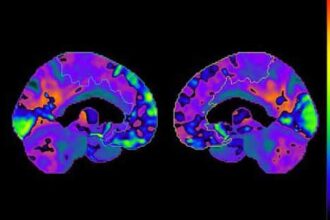Serving in the military requires people to commit to a job where encountering extreme risks are always a possibility and could result in a life-altering injury. . An Institute of Medicine report suggests that in the past decade, 13 to 20 percent of the 2.6 million U.S. service members who served in Iraq and Afghanistan are likely to experience posttraumatic stress disorder (PTSD).
Serving in the military requires people to commit to a job where encountering extreme risks are always a possibility and could result in a life-altering injury. . An Institute of Medicine report suggests that in the past decade, 13 to 20 percent of the 2.6 million U.S. service members who served in Iraq and Afghanistan are likely to experience posttraumatic stress disorder (PTSD). During a similar time period, more than 244,000 service members sustained a Traumatic Brain Injury (TBI). Most of these veterans will receive care outside the Veterans Affairs system.Yet civilian health providers do not appear to be adequately educated about the implications of military service as part of cultural competence.
The imperative to improve our health care efforts for those who voluntarily serve in the U.S. military is clear, but these numbers are just part of the story. Through a Veterans Affairs resource, About Face, current service members and veterans share struggles in dealing with PTSD. BrainLineMilitary.org (part of BrainLine.org) is a national multimedia project offering information and resources about preventing, treating, and living with TBI that provides military-specific information and resources on traumatic brain injury to veterans and service members.
Both websites include compelling narratives describing daunting personal mental and physical health issues. The descriptions of these sacrifices are humbling and the stories of the veterans’ survival are inspiring.
Many of us may have family members and friends in similar situations and can relate directly to these stories. For those who are less familiar with military life and its unique culture, raising awareness and forging an understanding of the unique health needs of armed forces members and the family members who support them before, during, and after deployment is paramount to improving the health care they receive. Having been through my fiancé’s (now husband’s) combat deployment during the Gulf War, I have seen firsthand the need for providers to be more aware of what it is like for a family member to send a loved one to a war zone. I know there are many others with a similar experience.
More than 20 staff members from across the AAMC have committed to raising awareness of the health care needs of military members, veterans, and their families. We are implementing our first Joining Forces Wellness Week right after Veterans’ Day, November 12 to 16, 2012. Events will include a webinar series on PTSD, TBI, and military cultural competence to educate providers, faculty, and medical students about these important concerns. The AAMC also is providing educational resources to our constituents; we hope that medical schools will find additional ways to work these topics into their teaching and learning activities during the Week.
It is extremely gratifying to be one of the staff members working with our schools, and our partners at the VA and Department of Defense, on our association’s contribution to the Joining Forces initiative. At the dinner table, my 10- and 11-year-old sons often ask their dad about his experiences in the Army, and I can see their interest in serving even at this young age. It lifts my heart to think that we will do a better job in meeting the health care needs not only for the current generation, but also for the next generation of Armed Forces members and their families as they serve their country in the very near future.









